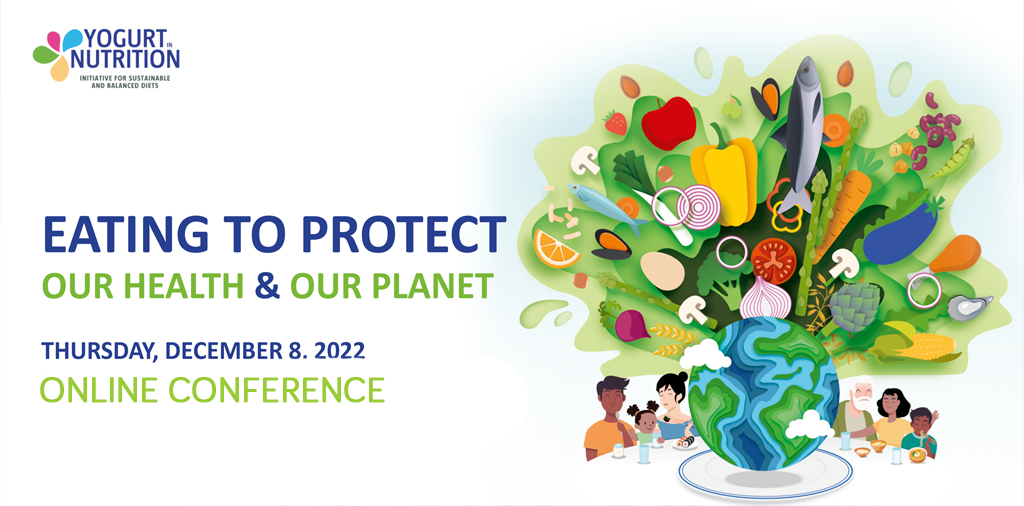Discover or re-discover online our conference on “Eating to protect our health and our planet”.
Online conference
During a symposium at the IUNS International Congress of Nutrition, in Tokyo, Japan, in dec 2022, the Yogurt in Nutrition Initiative gathered international scientists through a conference focused on eating to protect our health and our planet. The goal of this conference was to highlight the role of food systems, diets and households’ strategies to build more sustainable healthy diets. The conference, chaired by Sharon Donovan and Olivier Goulet, gathered three experts: Janet Ranganathan, Frans Kok and Jess Haines.
The conference was recorded and we are happy to share now the recording with you.
The challenge is to feed 10 billions people by 2050.
It will imply to close:
- a GHG emissions mitigation gap of 11 Gt (gigatonnes) by 2050
- a food gap of 56% by 2050
- a land gap of 593 million hectares to avoir further agricultural expansion
In order to do so, in short:
- Produce, protect, reduce, restore
- Use land efficiently
- Reduce demand fairly
- Manage ruminants
- Develop more output per hectare, animal, liter of water, kg of nitrogen
- Find the right balance for role of agri in soil carbon sequestration
In the plate, it will go through major transitions in food production, processing, food loss/waste:
- In regards to nutrient adequacy, plant-based diet solutions can provide the required nutrients, provided it is well-planned.
- Rank order in global warming: beef > other meat > cheese > milk > eggs > fish > plant products
- Results indicate that dairy has a moderate impact on sustainability: Daily intake of 250g of milk or derivatives e.g. yogurt fits in future sustainable diets
If modelization helps find the direction towards more sustainable diet, putting it in practice will imply changes in eating and consumer behaviors and adoption of new habits:
- Eat more plant-based proteins
- Cook more meals at home
- Reduce food waste



